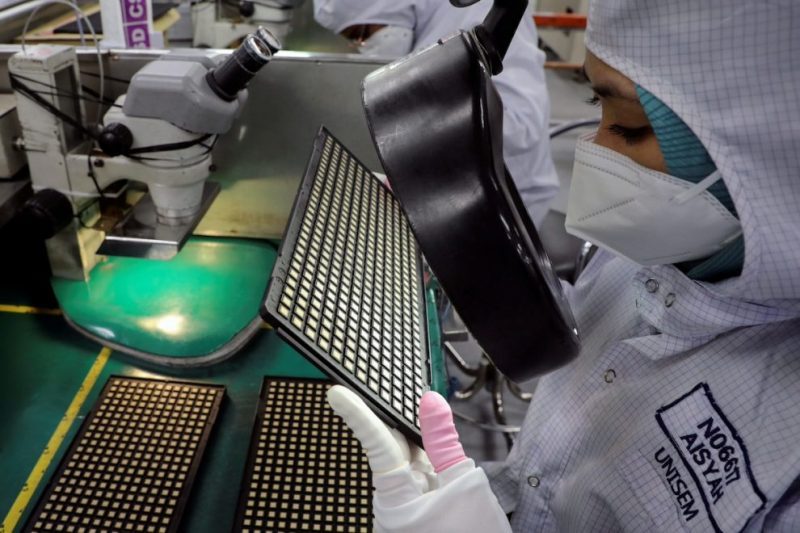China has accused the United States of “technological terrorism” after reports that Washington is pressing Japan and the Netherlands to ban the export of lithography machines used to make computer chips.
Foreign Affairs spokesman Zhao Lijian said reports that the US wanted to restrict the export of deep ultraviolet (DUV) lithography machines was “yet another example of the US’s practice of ‘coercive diplomacy’ by abusing state power and wielding technological hegemony.”
“It is also classic technological terrorism,” the spokesman said at a regular press conference on Wednesday, adding that by seeking to organise a “technological blockade and decoupling against other countries, the US would only remind other countries of the risks of technological dependence on the US.”
“Those who seek to block others’ way will only end up blocking their own way. We hope the parties concerned will adopt an objective and impartial stance on this matter and make independent decisions based on their own long-term interests and the market principles of equity and fairness.”
ALSO SEE: US May Hammer China Chip Ambitions With New Curbs Plan
Focus on ASML
China’s strong reaction to the news is not surprising given the emphasis the country has put on developing home-grown computer chip production – and the tens of billions of dollars it has spent trying to achieve that.
News emerged on Wednesday that the US wants to prevent the Dutch semiconductor equipment supplier ASML, which is was already blocked from selling China its most advanced extreme ultraviolet (EUV) equipment, from also selling to China its older, deep ultraviolet (DUV) equipment.
The majority of chips around the world are made with this DUV technology.
The US move would add “monumental” pressure on ASML if it was not allowed to sell China its DUV machines, even though the equipment is widely used in China’s chip sector, Xiang Ligang, director-general of the Beijing-based Information Consumption Alliance, was quoted as saying by the Global Times, a state news outlet, on Wednesday.
It noted that China’s was ASML’s third largest export market and represented about 16% of the company’s 2021 sales.
Near-Monopoly on Lithography Systems
“ASML comprises 95% of the global DUV market, and China does not have any local alternative,” Edison Lee, an equity analyst at Jefferies in Hong Kong, said on Wednesday.
If China did not have access to DUV and other key technologies, domestic foundries would not be able to expand capacity, Lee said, adding that domestic companies lacked the kind of technology to keep China at the forefront of chip design and manufacture.
Citibank analysts felt a total ban on DUV equipment was “highly unlikely” but said that further restrictions on equipment makers such as ASML could be tied to China’s foreign policy “escalations with Russia or incursions into Taiwan.”
The Dutch firm has a near-monopoly on the manufacture of state-of-the-art lithography systems, which are machines vital for chipmakers such as Intel, Taiwan Semiconducting Manufacturing Company (TSMC) and Samsung. It is the only maker of chip manufacturing equipment that uses EUV light waves.
Lithography systems cost hundreds of millions of dollars and use focused beams of light to create the circuitry of computer chips. The equipment requires an export licence because computer chips are considered “dual use” technology with military as well as commercial applications.
In 2021, the US National Security Commission on Artificial Intelligence, led by former Google CEO Eric Schmidt, recommended that the departments of State and Commerce should push allies to deny China access to top DUV and EUV and related equipment.
- Jim Pollard and George Russell with Reuters.
ALSO on AF:
Samsung Shares Rise 3% After Upbeat Quarterly Earnings
Samsung Starts to Mass Produce Advanced 3-Nanometre Chips
Chinese Company Denies Alleged IP Infringement of ASML
Sanctions On Russia Remind China Over Its Need For Chips
























